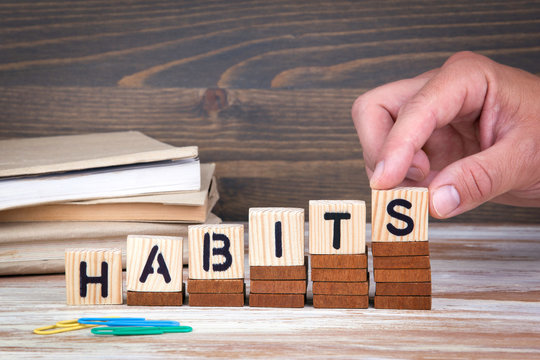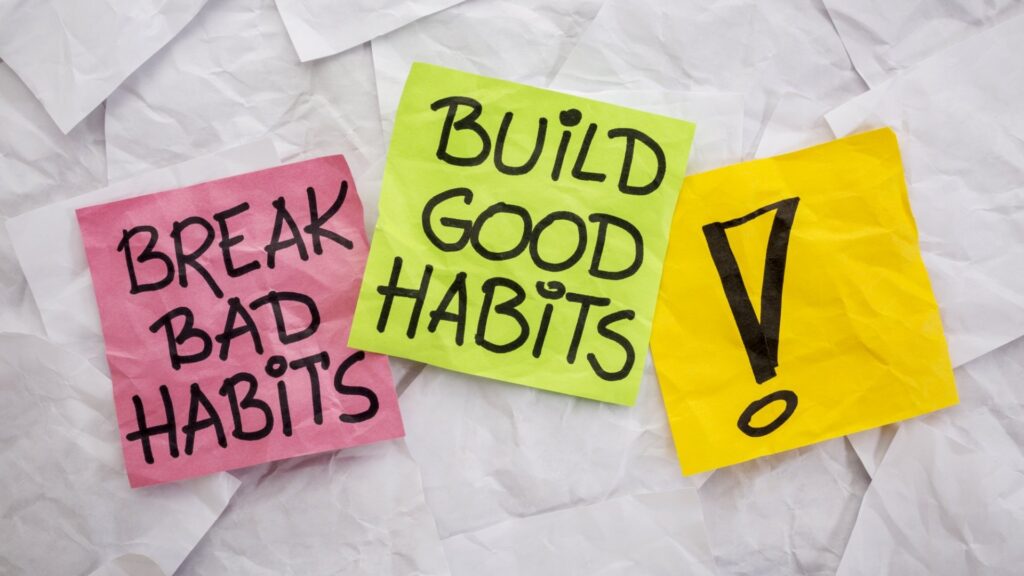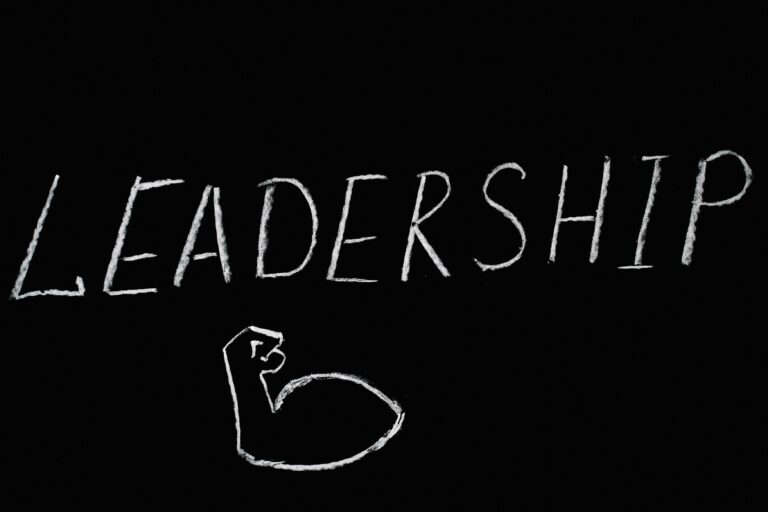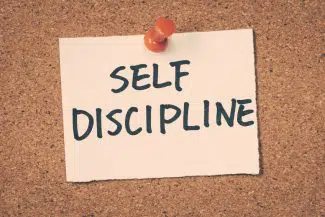Developing a habit can transform your life by fostering consistency, discipline, and progress toward your goals. Habits, whether positive or negative, shape your daily routine and influence your long-term success.
While many people struggle with sustaining new habits, understanding the psychology behind them makes the process easier and more effective. The key lies in breaking down the habit formation process into manageable steps, ensuring consistency, and staying committed over time.
Whether you aim to exercise regularly, improve productivity, or build better relationships, learning how to develop a habit starts with small, intentional actions.
Repetition and patience are essential to embed new behaviors into your routine. Over time, these actions become automatic, helping you achieve lasting results.
This guide outlines actionable strategies on how to develop a habit successfully and sustain it for the long term.
Understanding Habits

A habit is a repeated behavior performed so often that it becomes automatic. Habits play a significant role in shaping our daily lives and long-term outcomes.
They are formed through the habit loop, a process consisting of three key components: cue, routine, and reward. The cue triggers a specific action, the routine is the behavior itself, and the reward reinforces the behavior, encouraging its repetition.
Habits can be broadly categorized into two types: positive habits, which contribute to growth and well-being, and negative habits, which hinder progress. Understanding this distinction is crucial for identifying which habits to develop or change.
The psychology of habits reveals why some are easier to form than others. Factors like frequency, context, and emotional significance influence how quickly a behavior becomes ingrained. Developing a habit requires conscious effort, awareness of triggers, and consistent practice. Recognizing these elements provides the foundation for successful habit formation.
This understanding empowers individuals to create positive habits while breaking free from detrimental ones. By identifying cues and rewards and focusing on small, incremental improvements, anyone can harness the power of habits to transform their life.
Key Ways On How To Develop A Habit
1.Setting Clear Goals
The first step in developing a habit is setting clear and achievable goals. Without clarity, it’s easy to lose focus or become overwhelmed. When defining a habit, specificity matters. For example, instead of saying, “I want to exercise,” you could say, “I will do a 20-minute workout every morning at 7 AM.” This clear, actionable goal eliminates ambiguity and provides a solid foundation.
Clarity also means identifying the purpose behind the habit. Understanding why a habit is important can strengthen your motivation. Are you aiming to improve your health, boost productivity, or enhance relationships? Write down your goals and revisit them regularly to remind yourself of your intentions.
Breaking your habit into smaller milestones also helps. For instance, if you aim to read more, start with 10 pages daily instead of finishing an entire book in one sitting. These small wins build momentum and pave the way for long-term success.
2. Start Small and Be Realistic
Many people fail to develop a habit because they try to do too much too soon. Ambitious goals can quickly become overwhelming, leading to burnout or discouragement. The key to success lies in starting small and staying realistic about what you can achieve.
For example, if you want to meditate daily, begin with just two minutes a day. Over time, gradually increase the duration as the habit becomes more ingrained. This approach makes the process feel manageable and increases the likelihood of sticking with it.
When starting small, focus on building consistency. It’s not about how much you accomplish at first but about showing up every day. These small, consistent actions eventually snowball into significant progress. By keeping your goals realistic, you set yourself up for success and reduce the chances of feeling overwhelmed.
Read More
Life Skills for Teens
How To Activate 100% Of My Brain

3. Consistency Is Key
Consistency is the foundation of habit formation. Repeating a behavior regularly helps reinforce it in your brain, making it easier over time. In learning how to develop a habit successfully, aim to perform the desired behavior at the same time or in the same context each day.
One effective strategy for consistency is habit stacking. This involves linking your new habit to an existing one. For example, if you want to journal daily, you could do it right after brushing your teeth. The familiarity of the established habit makes it easier to adopt the new one.
Scheduling your habit is another powerful tool. Decide on a specific time or place for the habit and treat it like a non-negotiable appointment. This reduces the chances of forgetting or skipping it.
It’s important to understand that forming a habit takes time. While many believe it only takes 21 days, research shows that habit formation can take anywhere from 18 to 254 days, depending on the complexity of the behavior. Stay patient and committed, knowing that consistency will eventually yield results.
4. Overcoming Challenges
Developing a habit isn’t without its challenges. Procrastination, lack of motivation, and external distractions are common obstacles that can derail your progress. However, understanding and addressing these challenges can help you stay on track.
Start by identifying the specific barriers you face. Are you struggling with time management? Are you easily distracted by social media? Once you’ve pinpointed the issue, create strategies to address it. For instance, if time is a challenge, break the habit into smaller increments that fit your schedule.
Motivation can also fluctuate, making it harder to stick to your new habit. During low-motivation periods, focus on discipline rather than waiting to feel inspired. Remind yourself of the benefits of the habit and the goals you’ve set.
Managing setbacks is also crucial in knowing how to develop a habit. It’s normal to miss a day or two, but don’t let a minor slip turn into a full stop. Instead of dwelling on the mistake, recommit to your habit and move forward. Recognize that progress isn’t linear and that persistence is more important than perfection.
5. Leveraging Accountability
Accountability is a powerful tool in habit formation. Sharing your goals with others can help you stay committed and motivated. When someone else knows about your habit, you’re more likely to follow through because you don’t want to disappoint them or yourself.
One way to leverage accountability is by partnering with a friend, mentor, or coach. Having someone to check in with regularly can provide encouragement and support. For example, if your goal is to develop a habit of exercising daily, working out with a friend or joining a fitness group can keep you motivated.
Technology also plays a significant role in accountability. Habit-tracking apps allow you to monitor your progress and celebrate milestones. These tools provide visual reminders of your achievements, reinforcing your commitment to developing a habit. Additionally, sharing updates on social media or with a community can create a sense of responsibility.

6. Celebrate Progress
Acknowledging your progress is essential for reinforcing positive behavior. Celebrating small wins keeps you motivated and helps you stay committed to developing a habit.
Rewarding yourself doesn’t have to be extravagant. Simple gestures like taking a break, treating yourself to a favorite snack, or sharing your success with others can boost your morale. Rewards create positive associations with the habit, making it more enjoyable to continue.
While celebrating is important, avoid over-rewarding yourself, especially in ways that contradict your goals. For instance, rewarding a week of healthy eating with an unhealthy binge can undermine your efforts. Instead, focus on rewards that align with your objectives.
7. Building a Growth Mindset
A growth mindset is crucial for successfully developing a habit. It emphasizes progress over perfection and encourages learning from failures. When you view setbacks as opportunities to grow rather than reasons to quit, you become more resilient.
Focus on the effort you invest in your habit rather than immediate results. For instance, if your goal is to run every morning but you miss a day, don’t dwell on the mistake. Instead, analyze what went wrong, adjust your plan, and recommit. Each challenge strengthens your resolve and helps you improve.
Patience is also essential. Developing a habit takes time, and progress may not always be linear. By staying consistent and embracing small, steady improvements, you build the foundation for lasting change. Cultivating a growth mindset ensures you remain adaptable and motivated throughout the journey.
8. Turning Habits into Lifestyle Changes
The ultimate goal of developing a habit is to make it a permanent part of your lifestyle. This transition happens when the habit becomes integrated into your identity. Instead of thinking, “I want to develop a habit of reading,” start saying, “I am a reader.” Associating the habit with your self-image strengthens your commitment and makes the behavior feel natural.
Sustaining a habit also requires regular reflection and adjustments. As your life changes, ensure your habits remain relevant and practical. For example, if a busy schedule disrupts your workout routine, modify the timing or intensity to maintain consistency.
Celebrate the transformation as the habit becomes second nature. Recognize that the journey doesn’t end with forming a habit; it continues as you incorporate it into your lifestyle. By doing so, you create a system that supports ongoing growth and development.
Conclusion
Knowing how to developing a habit is a powerful way to bring about positive change in your life. By understanding the psychology of habits, setting clear goals, starting small, staying consistent, overcoming challenges, and leveraging accountability, you create the conditions for success.
A supportive environment and regular celebrations further reinforce your efforts.Cultivating a growth mindset ensures you stay motivated, while transforming habits into lifestyle changes solidifies your progress. Remember, patience and persistence are key.
Developing a habit may take time, but the rewards are lifelong. Start today, and take the first step toward building habits that align with your goals and values. Small changes made consistently can lead to extraordinary transformations.






